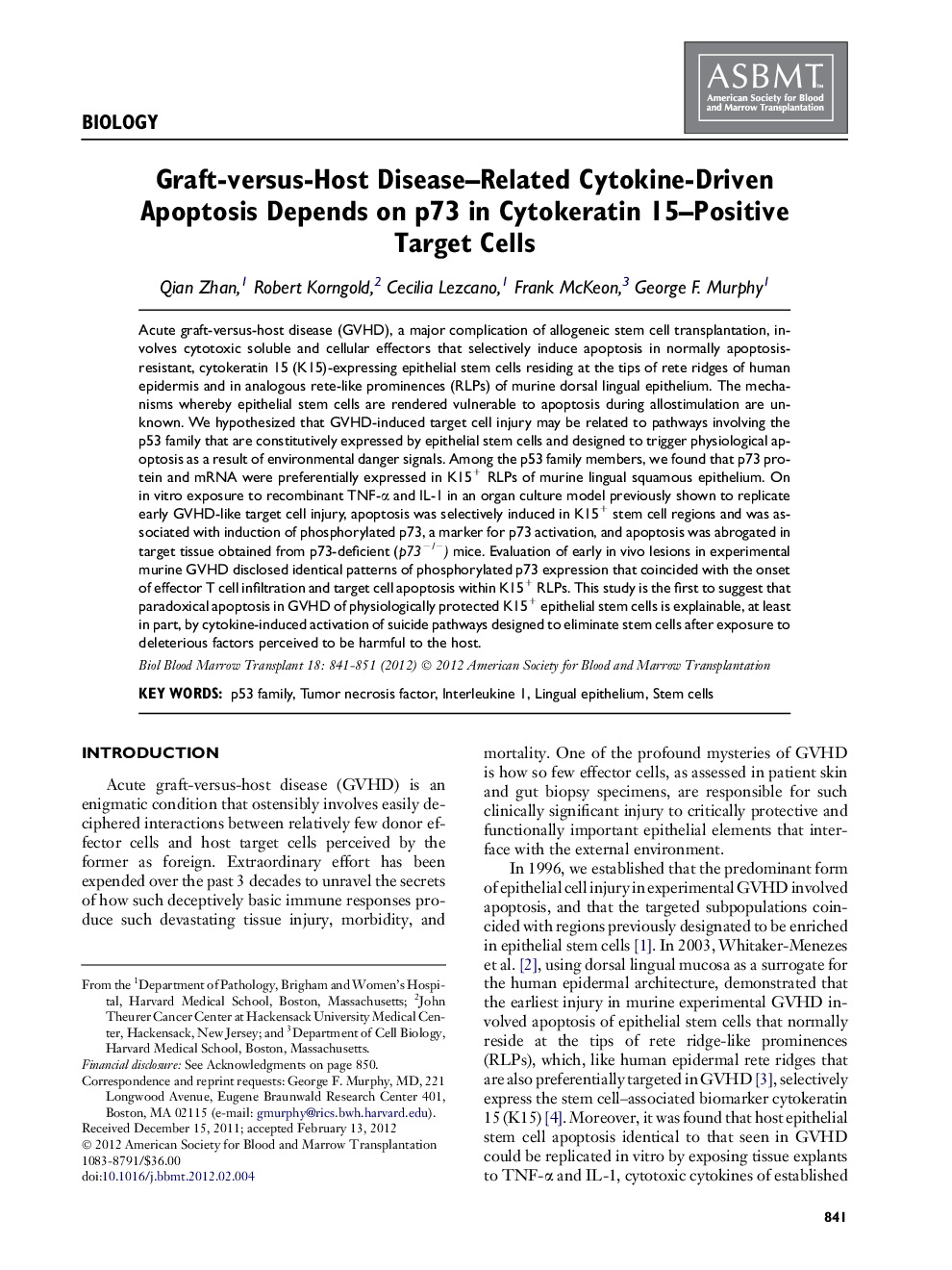| Article ID | Journal | Published Year | Pages | File Type |
|---|---|---|---|---|
| 2102580 | Biology of Blood and Marrow Transplantation | 2012 | 11 Pages |
Acute graft-versus-host disease (GVHD), a major complication of allogeneic stem cell transplantation, involves cytotoxic soluble and cellular effectors that selectively induce apoptosis in normally apoptosis-resistant, cytokeratin 15 (K15)-expressing epithelial stem cells residing at the tips of rete ridges of human epidermis and in analogous rete-like prominences (RLPs) of murine dorsal lingual epithelium. The mechanisms whereby epithelial stem cells are rendered vulnerable to apoptosis during allostimulation are unknown. We hypothesized that GVHD-induced target cell injury may be related to pathways involving the p53 family that are constitutively expressed by epithelial stem cells and designed to trigger physiological apoptosis as a result of environmental danger signals. Among the p53 family members, we found that p73 protein and mRNA were preferentially expressed in K15+ RLPs of murine lingual squamous epithelium. On in vitro exposure to recombinant TNF-α and IL-1 in an organ culture model previously shown to replicate early GVHD-like target cell injury, apoptosis was selectively induced in K15+ stem cell regions and was associated with induction of phosphorylated p73, a marker for p73 activation, and apoptosis was abrogated in target tissue obtained from p73-deficient (p73−/−) mice. Evaluation of early in vivo lesions in experimental murine GVHD disclosed identical patterns of phosphorylated p73 expression that coincided with the onset of effector T cell infiltration and target cell apoptosis within K15+ RLPs. This study is the first to suggest that paradoxical apoptosis in GVHD of physiologically protected K15+ epithelial stem cells is explainable, at least in part, by cytokine-induced activation of suicide pathways designed to eliminate stem cells after exposure to deleterious factors perceived to be harmful to the host.
